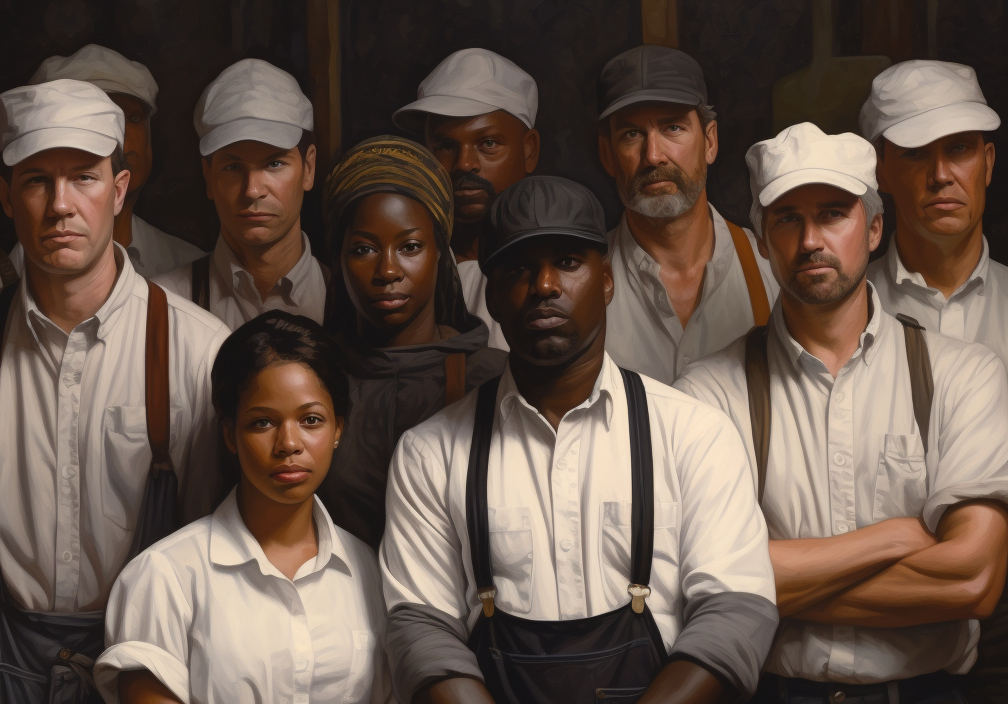Every so often, a tidal wave of change sweeps across the shorelines of our societal norms, forever altering the landscape of what we thought we knew. One such wave has swept through the job market this past spring, bringing with it a gust of hope and optimism. For the first time since the Bureau of Labor Statistics started keeping tabs in 1972, the playing field has been leveled: Black people now stand shoulder-to-shoulder with their White counterparts in employment relative to population size.
That’s according to Federal Reserve Economic Data (FRED), an online database consisting of hundreds of thousands of economic data time series from scores of national, international, public, and private sources, created and maintained by the Research Department at the Federal Reserve Bank of St. Louis.
In the sunny month of May, 59.6% of Black workers were gainfully employed, barely trailing behind the 60.2% of White ones. This was a game-changer, a beautiful stride towards financial equality that upends decades of disparity. In fact, just a month earlier, it was the Black community that slightly led the employment race.
Did you know? By creating goals and sharing them in public with your friends and family, you’ll increase your chances of success! You can download the Wellthi app here, if you act by July 3, you could win $10,000 for just posting your financial goal in the app!
The job market, eager and hungry for talent, has been a blessing, particularly to Black workers. As Oprah once said, “The reason I’ve been able to be so financially successful is my focus has never, ever for one minute been money.” Instead, she emphasized on serving with passion, and when employers are hard-pressed to find talent, they may begin to see this passion over prejudice.

High demand for talent may make employers less prone to racial bias, some researchers believe. This openness has given the Black community a much-deserved chance to shine, a chance they may have been denied in less favorable times.
Now, don’t get me wrong, the issue has its complexities. The unemployment rate for Black workers still trailed behind at 5.6% compared to 3.3% for White workers in May.
And this narrowing gap doesn’t necessarily reflect a reduction in discrimination. Many older workers, predominantly White, opted for early retirement amidst the pandemic, causing the White employment-population ratio to lag behind.
That said, as we stand on this new ground of opportunity, we must remember that this is a marathon, not a sprint. It’s crucial to see what happens when the economy shifts from hiring to firing. Historically, Black workers have been marginally attached to the workforce, being the first to be let go in economic downturns.
If the trend is here to stay and we see a softer economy, the pain might be distributed more equitably. Only time will reveal if this change is more than skin deep.
So, my friends, let’s celebrate this step towards equality, but remain mindful of the bridges we need to cross and the ones we need to burn, as Oprah advises us. After all, challenges are but stepping stones to greatness, and this could just be the first of many leaps. Together, let’s ride this wave, towards financial freedom, equality, and a future that looks as bright and promising as a runway lit up for a Chanel show.
You can download the Wellthi app here, if you act by July 3, you could win $10,000 for just posting your financial goal in the app!
Go Deeper
The Civil Rights Act of 1964: A Long Struggle for Freedom (Library of Congress)
The Economic State of Black America (McKinsey)
What Is FRED? (FRED)
#RacialEquality, #JobMarket, #FinancialIndependence, #CareerProgress, #WellthiWisdom”,


